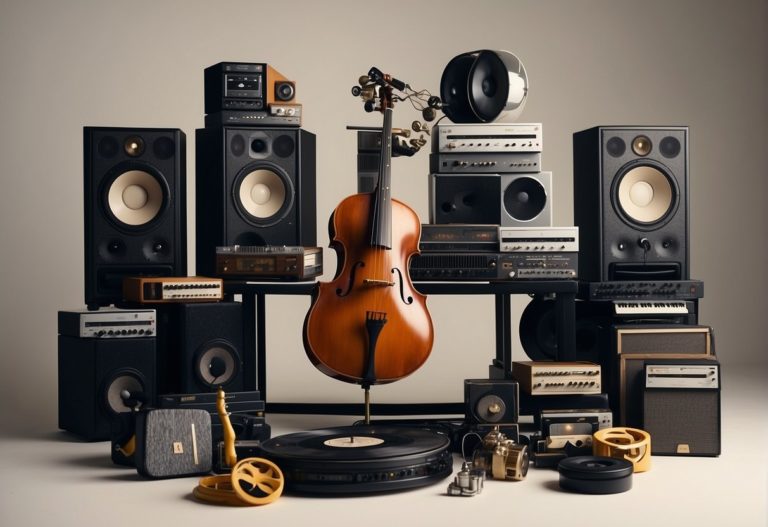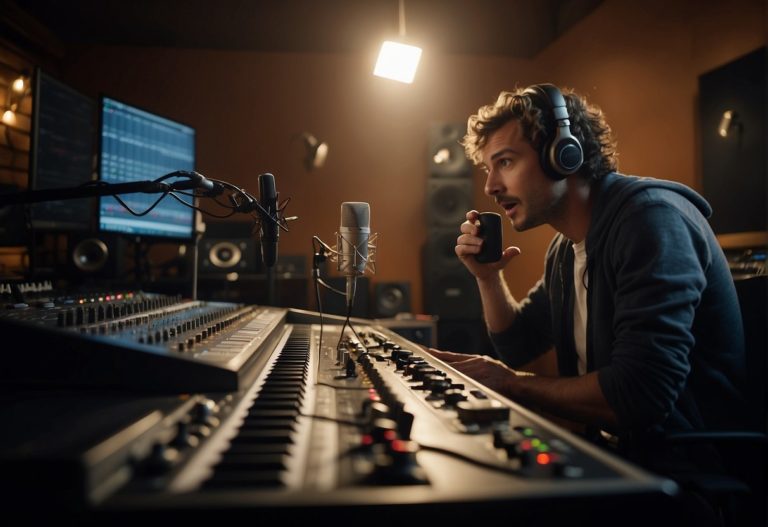What Does MC Stand for in Music? A Clear Explanation
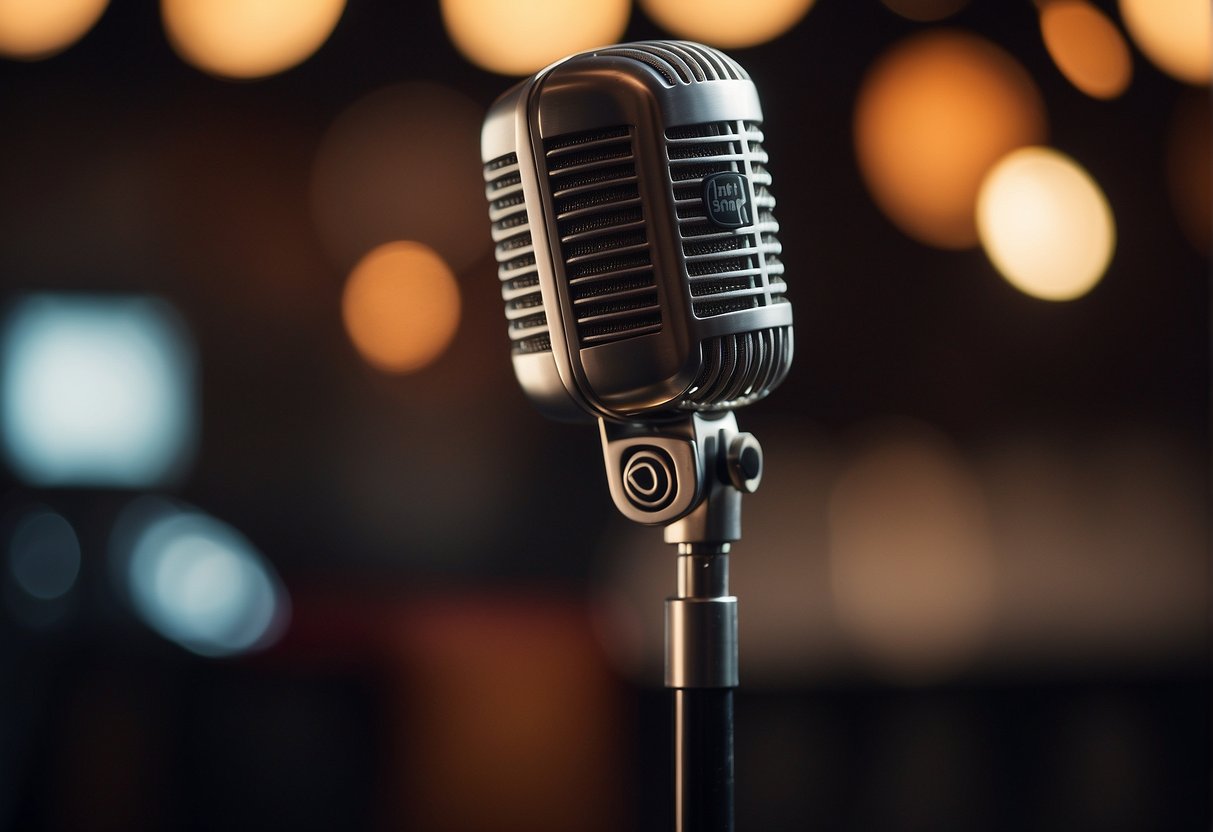
MC is a term that is commonly used in the music industry, especially in rap and hip-hop. It is an abbreviation for Master of Ceremonies, and it refers to a person who is responsible for hosting an event or performance. However, the meaning of MC in music has evolved over time, and it now refers to a rapper who is skilled in the art of MCing.
The role of an MC in music is to engage the audience and create an atmosphere of excitement and energy. MCs use their skills in rapping, storytelling, and crowd control to entertain and captivate their audience. They are often the driving force behind a performance, and their ability to connect with the crowd is what sets them apart from other artists.
Key Takeaways
- MC stands for Master of Ceremonies and refers to a person who is responsible for hosting an event or performance.
- In music, an MC is a rapper who is skilled in the art of MCing and is responsible for engaging the audience and creating an atmosphere of excitement and energy.
- The role of an MC in music has evolved over time, and it now includes elements of storytelling, crowd control, and rapping.
The Role of an MC in Music
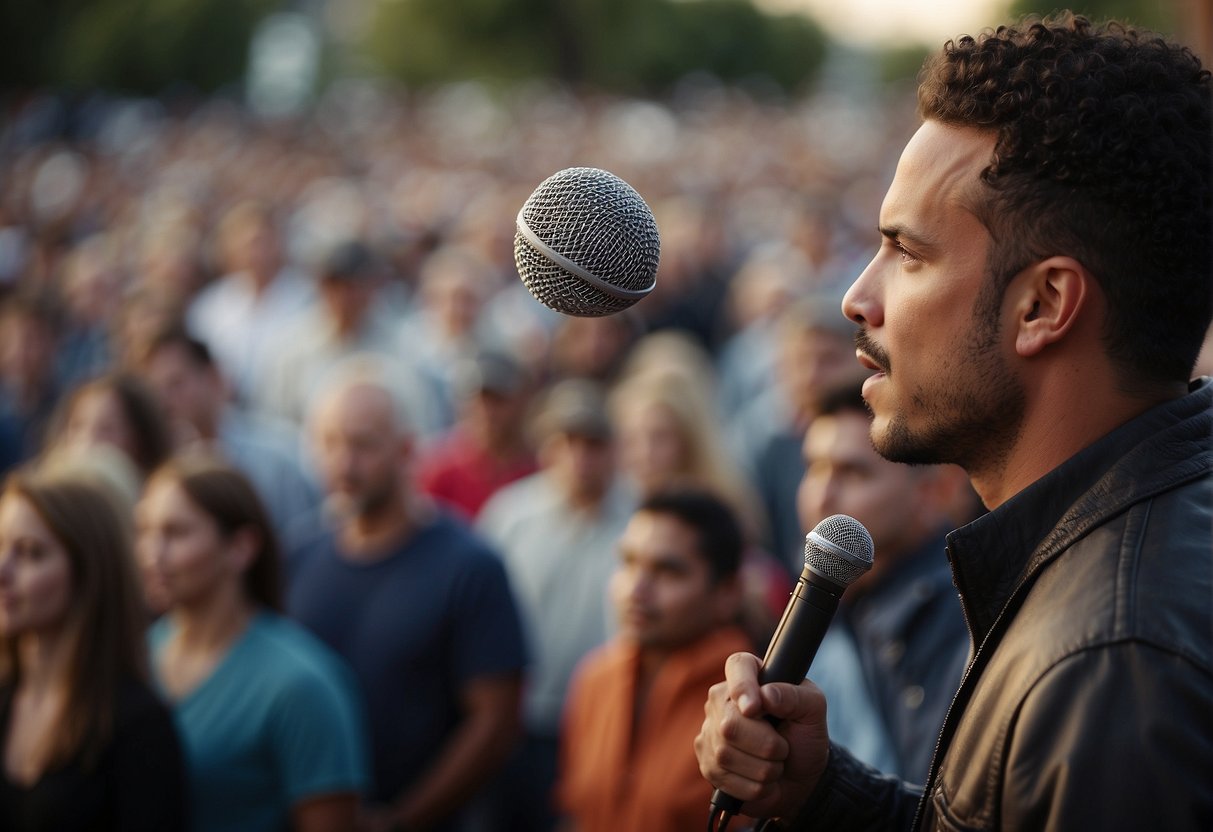
An MC, short for Master of Ceremonies, is a crucial part of any music performance. MCs are responsible for keeping the audience engaged and entertained while also guiding the flow of the event. They are often the face of the show and set the tone for the entire performance. In this section, we will explore the different roles an MC plays in music.
Master of Ceremonies and Host
One of the primary roles of an MC is to act as a host for the event. They welcome the audience and introduce the performers, creating a warm and inviting atmosphere. An MC can also provide context for the music being played, giving the audience a deeper understanding of the artist’s work. They may also make announcements about upcoming events or merchandise sales.
Mic Controller and Performer
An MC is also a performer in their own right. They use their voice to entertain the audience, often rapping or singing over the music. MCs are known for their stage presence and ability to hype up the crowd. They may also interact with the audience, getting them involved in the performance.
As a mic controller, an MC is responsible for controlling the sound system and ensuring that the music is playing at the correct volume. They may also adjust the microphone levels for each performer, ensuring that everyone sounds their best.
Overall, an MC plays a vital role in any music performance. They are responsible for keeping the audience engaged and entertained, while also guiding the flow of the event. Whether acting as a host or a performer, an MC is an essential part of any music show.
Historical Context and Evolution
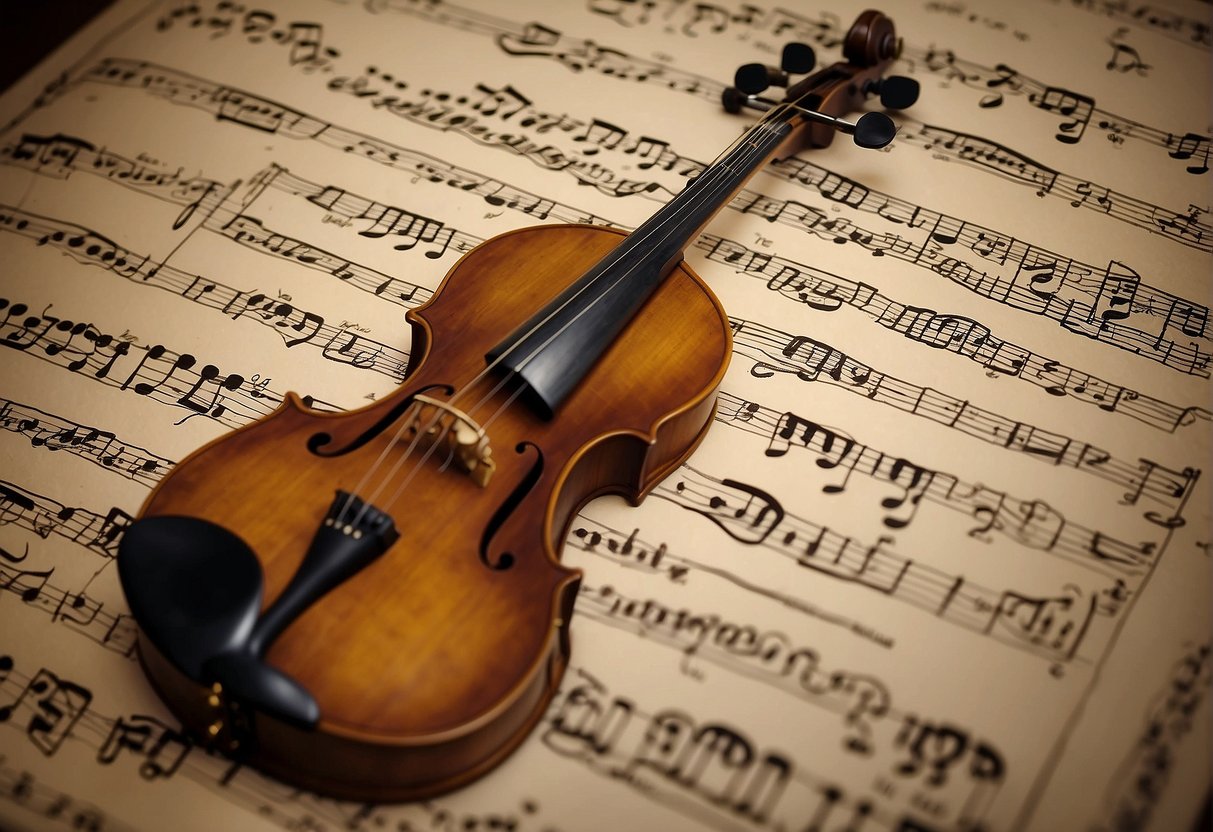
Origins in the Bronx
The origin of MCs can be traced back to the block parties in the Bronx, New York City, during the 1970s. These block parties were organized by DJs who would play music for the people. The role of the MC was to keep the crowd engaged and entertained while the DJ played music. At first, MCs were called “Master of Ceremonies” or “Emcee.” They would use their charisma, wit, and creativity to interact with the crowd and hype up the party.
Development of Hip-Hop Culture
As hip-hop culture started to develop, MCs became an essential part of it. They were not only hosting parties but also performing their own music. MCs would rap over the beats provided by the DJ and engage the crowd with their lyrics. The early MCs were known for their ability to freestyle, which means they would improvise lyrics on the spot.
MCs and the Growth of Rap
MCs played a significant role in the growth of rap music. They were the ones who introduced the world to this new genre of music. In the early days, rap music was not mainstream, and MCs were not making a lot of money. However, as rap music became more popular, MCs started to gain more recognition and success.
MCs are still an essential part of rap music today. They are the ones who bring energy and personality to the music. The role of the MC has evolved over time, and now they are not only rapping but also producing and managing their own careers. Some of the most successful MCs in the world are also entrepreneurs, actors, and social activists.
In conclusion, the evolution of MCs in music has been significant. They started as hosts at block parties and evolved into the essential part of hip-hop culture and rap music. MCs have played a crucial role in the growth and development of rap music and continue to do so today.
Artistic Elements of MCing
MCing is an essential element of hip-hop music. It is a vocal form of expression that involves the art of rapping. In this section, we will discuss the artistic elements of MCing.
Lyricism and Rhyme
Lyricism and rhyme are the fundamental elements of MCing. MCs use words, wordplay, verses, lyrics, metaphors, and poetry to create their rhymes. They use clever wordplay, complex rhyme schemes, and metaphors to convey their message to the audience. Good MCs are known for their ability to deliver creative and thought-provoking rhymes that captivate their audience.
Flow and Rhythm
Flow and rhythm are also crucial elements of MCing. Flow refers to the way an MC delivers their rhymes, while rhythm refers to the beat or tempo of the music. An MC’s flow and rhythm can make or break a song. A good MC knows how to ride the beat and deliver their rhymes in a way that complements the music.
Storytelling and Message
Storytelling and message are other important elements of MCing. MCs use their rhymes to tell stories and convey messages to their audience. They use their lyrics to express their views on social, political, and cultural issues. MCs also use their rhymes to tell stories about their lives and experiences.
In conclusion, MCing is an essential element of hip-hop music that involves the art of rapping. The artistic elements of MCing include lyricism and rhyme, flow and rhythm, and storytelling and message. Good MCs are known for their ability to deliver creative and thought-provoking rhymes that captivate their audience.
Influence on Society and Culture
Social and Political Commentary
MCs have played an essential role in addressing social and political issues through their music. They have used their platform to raise awareness about inequality, police brutality, and other social injustices. For instance, Public Enemy’s “Fight the Power” was a powerful statement against racism and police brutality. The song was featured in Spike Lee’s film “Do the Right Thing,” which further amplified its message.
MCs have also been vocal about political issues, such as the war on drugs and immigration policies. For example, Tupac Shakur’s “Changes” addressed the struggles faced by African Americans and Latinos in the United States. The song tackled issues such as poverty, racism, and police brutality, and its message still resonates with many people today.
Cultural Impact and Legacy
MCs have had a significant impact on hip hop culture and music in general. They have been instrumental in shaping the genre and making it the global phenomenon it is today. MCs have also influenced fashion, language, and attitudes towards social issues.
The legacy of MCs can be seen in the continued popularity of hip hop music and culture. Many of the issues addressed by MCs in their music are still relevant today, and their message continues to inspire new generations of artists.
MCs have also been instrumental in promoting authenticity in hip hop. They have emphasized the importance of staying true to oneself and one’s experiences, rather than trying to conform to a particular image or style. This emphasis on authenticity has helped to create a diverse and vibrant hip hop culture that continues to evolve and grow.
In conclusion, MCs have had a significant influence on society and culture through their music. They have used their platform to address social and political issues and promote authenticity in hip hop. Their legacy continues to inspire new generations of artists and shape the genre as a whole.
Technical Aspects of MCing
MCing, also known as rapping, is a complex art form that requires a range of technical skills. This section will explore some of the key technical aspects of MCing, including freestyling and improvisation, voice and delivery, and connection with the audience.
Freestyling and Improvisation
One of the most important aspects of MCing is the ability to freestyle and improvise. This involves creating lyrics on the spot, often in response to a given situation or prompt. Freestyling requires a high level of creativity, as well as a strong grasp of rhythm and rhyme. Skilled MCs are able to improvise effortlessly, weaving together complex rhymes and metaphors in real-time.
Voice and Delivery
Another crucial aspect of MCing is the voice and delivery of the MC. A good MC must have a strong, clear voice that is able to cut through the music and reach the audience. They must also have a good sense of timing and cadence, knowing when to speed up or slow down their delivery to match the beat of the music. Some MCs use different vocal techniques to add variety and interest to their delivery, such as changing their tone or pitch, or using different accents or dialects.
Connection with the Audience
Finally, a successful MC must be able to connect with their audience and engage them in the performance. This involves a range of skills, from reading the crowd and adjusting the performance accordingly, to using body language and gestures to convey emotion and energy. A good MC must also be able to improvise and interact with the audience, responding to their reactions and incorporating them into the performance.
In conclusion, MCing is a complex and challenging art form that requires a range of technical skills. Skilled MCs must be able to freestyle and improvise, have a strong voice and delivery, and connect with their audience in a meaningful way. By mastering these technical aspects of MCing, an MC can create powerful and engaging performances that leave a lasting impression on their audience.
Prominent MCs and Their Contributions
Hip-hop music has been around for several decades, and MCs have played a crucial role in shaping the genre. Here are some of the most prominent MCs and their contributions to the world of music.
Pioneers and Icons
Tupac Shakur – Known for his socially conscious lyrics and charisma, Tupac Shakur is considered one of the greatest MCs of all time. His music addressed issues such as poverty, police brutality, and racism, and he was a voice for the marginalized communities.
Ice-T – Ice-T is another iconic MC who was known for his gritty, streetwise lyrics. He was one of the pioneers of gangsta rap and helped establish the genre in the 1980s.
MC Lyte – MC Lyte was one of the first female MCs to gain mainstream success. She was known for her empowering lyrics and her ability to hold her own in a male-dominated industry.
MC Hammer – MC Hammer was a pop-rap superstar in the late 1980s and early 1990s. He was known for his catchy hooks and dance moves, and his music helped bring hip-hop to a wider audience.
Modern Influencers and the Future
Kendrick Lamar – Kendrick Lamar is one of the most influential MCs of the modern era. He has won numerous awards for his socially conscious lyrics and his ability to tell compelling stories through his music.
Nas – Nas is another legendary MC who has had a significant impact on the genre. He is known for his intricate wordplay and his ability to paint vivid pictures with his lyrics.
J. Cole – J. Cole is a rapper who has gained a massive following in recent years. He is known for his introspective lyrics and his willingness to address social issues in his music.
Lil Wayne – Lil Wayne is one of the most successful MCs of all time. He is known for his unique flow and his ability to churn out hit after hit.
N.W.A. – N.W.A. was a group of MCs who helped pioneer gangsta rap in the late 1980s. Their music addressed issues such as police brutality and racism, and they were unapologetic in their portrayal of life on the streets.
The Roots – The Roots are a hip-hop band that has been around since the early 1990s. They are known for their live instrumentation and their ability to blend different genres of music.
The contributions of these MCs have been significant in shaping the genre of hip-hop music worldwide.
The Business of MCing
MCing is not just about rhyming and performing on stage. It is also a business that requires branding, marketability, and live performances to succeed. In this section, we will discuss how MCs can build their brand, increase their marketability, and organize live performances and tours.
Branding and Marketability
One of the most important aspects of MCing is branding. MCs need to create a brand that is unique and memorable. This can be achieved through various means, such as creating a stage name, developing a distinctive style, and creating a logo or image that represents their brand. MCs should also develop a strong online presence, including a website and social media accounts, to increase their visibility and reach a wider audience.
Marketability is also crucial for MCs. They need to be able to sell their music, merchandise, and services to their audience. MCs can increase their marketability by creating high-quality music that resonates with their audience, developing a strong fan base, and collaborating with other artists and brands in the industry. They should also be able to communicate their value proposition effectively and negotiate favorable deals with promoters, managers, and other stakeholders.
Live Performances and Tours
Live performances and tours are the lifeblood of MCs. They provide an opportunity for MCs to showcase their skills, connect with their fans, and generate revenue. MCs should be able to organize live performances and tours effectively, including booking venues, promoting their shows, and managing their finances. They should also be able to deliver high-quality performances that leave a lasting impression on their audience.
To organize successful live performances and tours, MCs need to have a strong network of contacts in the industry, including promoters, managers, and other artists. They should also be able to manage their time effectively, balancing their creative work with their business responsibilities. Finally, they should be able to adapt to changing circumstances, such as unexpected cancellations or changes in the industry landscape.
In conclusion, MCing is a complex and multifaceted business that requires a range of skills and competencies. MCs need to be able to build their brand, increase their marketability, and organize successful live performances and tours to succeed in this competitive industry. By developing these skills and working hard, MCs can achieve their goals and make a lasting impact on the music industry.
Frequently Asked Questions
What is the origin of the term ‘MC’ in hip-hop culture?
The term ‘MC’ in hip-hop culture stands for “Master of Ceremonies.” According to 7ESL, the term originated in the 1970s in the Bronx, New York, where DJs would hire people to introduce them and keep the crowd entertained during breaks in the music. These individuals were known as MCs, and their role was to hype up the crowd and keep the energy high.
How does an MC differ from a rapper in the music industry?
While the terms “MC” and “rapper” are often used interchangeably, there are some differences between the two. According to Our Music World, an MC is typically someone who is skilled at hosting events and hyping up the crowd, while a rapper is someone who is skilled at writing and performing lyrics. However, many MCs are also talented rappers, and vice versa.
In what ways do MCs contribute to a live music performance?
MCs play an important role in live music performances, particularly in hip-hop and electronic dance music (EDM) concerts. According to Performer Life, MCs are responsible for hyping up the crowd, making announcements, and keeping the energy high throughout the performance. They may also engage in call-and-response routines with the audience, and may even perform their own original music.
Why might someone in the DJ scene also be referred to as an MC?
In the DJ scene, an MC is someone who works alongside the DJ to provide vocal accompaniment to the music. According to Bleu Mag, MCs in the DJ scene may provide hype and commentary during the performance, or may even perform their own original music. In some cases, the DJ and MC may work together to create a seamless and dynamic performance.
What role does an MC play in K-pop concerts or events?
In K-pop concerts and events, MCs are often responsible for introducing the performers and keeping the audience engaged between performances. According to 7ESL, MCs may also provide translations for non-Korean-speaking audience members, and may even engage in dance routines or other performances themselves.
How has the definition of an MC evolved in the context of modern music?
The definition of an MC has evolved significantly in the context of modern music. While MCs were originally associated primarily with hip-hop and electronic dance music, they are now found in a wide range of genres and musical contexts. According to Our Music World, MCs are now seen as versatile performers who can add energy and excitement to any live music performance.

